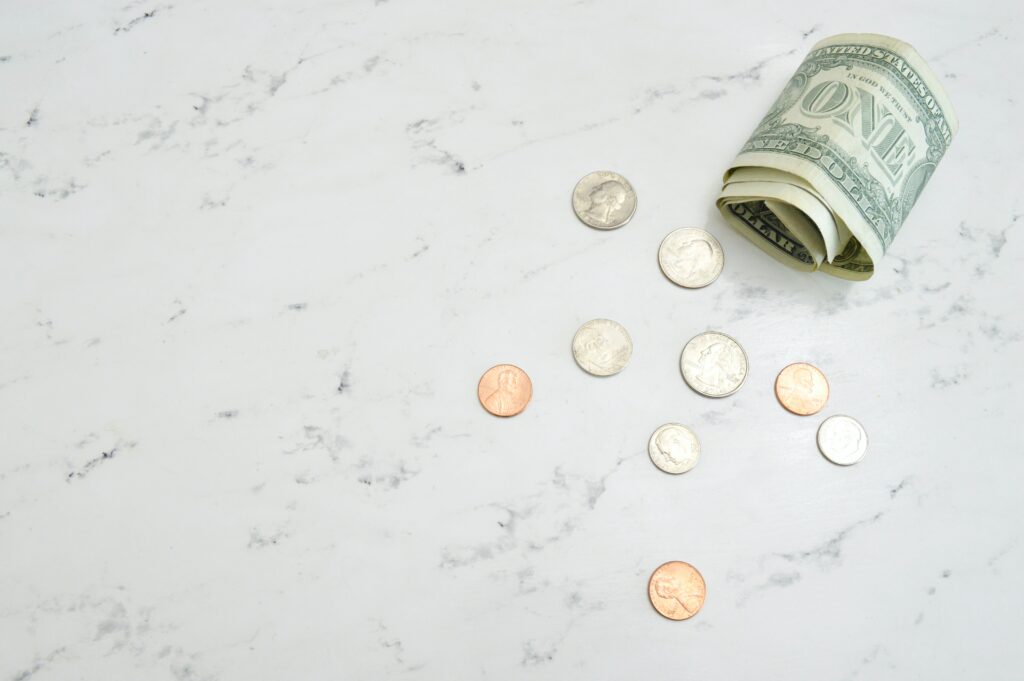In the spirit of resolutions and intentions, do you set financial goals? Do you budget for the year ahead? Today, we’re taking a deep-dive into financial health and how it can help your overall well-being.

What Is Financial Health?
When it comes to taking care of your health and well-being, financial health is often overlooked. But effectively managing your economic life can improve your general well-being. After all, meeting financial expectations gives you the freedom and flexibility to create a life of joy and purpose.
So, what is financial health? Financial health is a term used to describe the state of your personal monetary affairs. There are many dimensions to financial health, including the amount of savings you have, how much you’re putting away for retirement, and how much of your income you are spending on fixed or non-discretionary expenses. In essence, financial health is a state of well-being—it’s understanding your monetary assets and liabilities. Then, it’s a matter of using these metrics and measurements to assess your financial health, with the goal of improving (or maintaining) your overall financial situation. It can also benefit your mental, emotional, and even physical well-being.
The Importance of Financial health
According to a survey from Everyday Health, finances are “the most common source of stress among men and women.” Truthfully, this isn’t a surprise. However, when your finances are in order, money is one less thing to stress about. So, why is financial health important? Here are a few examples:
- It gives you a sense of security
- It allows for spontaneity
- You have a safety net to fall back on
- You won’t routinely worry about money
In essence, financial wellness gives you the liberty to make conscious purchases, pay off your expenses in a timely manner, and plan for your future.
how can you improve your financial health?
The best first step in improving your financial health is to track your spending. Do this for 1-2 months. Simultaneously, create a budget. By knowing exactly how much money you spend, you can more accurately plan to increase your income or cut back on unnecessary expenses if needed.
Once a budget is created, you can set money aside for building an emergency fund. You may also need to set aside money to pay off debt, student loans, etc. As you pay down debt, your credit score will go up—which is integral for your financial health. With less debt, you’ll likely have more disposable income, affording things like insurance, vacations, and more. Once all of those metrics start to improve, add up the value of your assets (like your savings or home equity) and subtract the value of your liabilities from that number (like student loans and mortgage debt). The result is your net worth. When you take steps to improve your net worth, your financial health improves as well.
All of that said, keep in mind that there will be things that are out of your control, which is why it is important to do what you can to live within your means and have adequate savings. Being over-prepared is always better than being blindsided.

Establish Healthy Savings Habits
Let’s say your goal is to have an emergency savings of $4,000 by the end of 2022. In order to do that, you’ll want to establish healthy saving habits, ASAP. A few ways to do that are by paying your bills on time, routinely tucking away money into your savings account, avoiding your spending triggers (unsubscribe to tempting emails!), and setting benchmarks on a quarterly basis—after all, accountability is key.
best personal finance books
I will Teach you to be rich
The premise of this book: earn more, save more, and live a rich life. This is a down to earth, no-BS kind of book. No big fancy terms, no crazy plans, etc. It’s packed with basic finance tips that will put your financial life on autopilot mode. The solutions are simple. Sounds too good to be true? Read the book.
The Simple path to weath
Hands down, this is one of the best financial books I’ve ever read. If I could gift a copy of it to every single 20-something, I would. This book is like listening to a sage friend who has endured decades of playing the market and explains there’s an easier way. Collins explains his straightforward, achievable process: avoid and eliminate debt, spend less than you earn, invest in low-cost index funds, and then do nothing. Simply sit back and wait for the magic of time and compound interest to do the rest.
Get good with money
This is a 10-step plan for finding peace, safety, and harmony with your money—no matter how big or small your goals (and no matter how rocky the market might be). The inspiring and savvy “Budgetnista” is like a masterclass in financial wholeness.
you are a badass at making money
Ready to master the mindset of wealth? This is an uplifting manifesto on removing obstacles between yourself and the income of your dreams. It’s like a HIIT workout for making money. Transform your bank account—and your life—with this book.
Images courtesy of Unsplash.



Leave a Reply